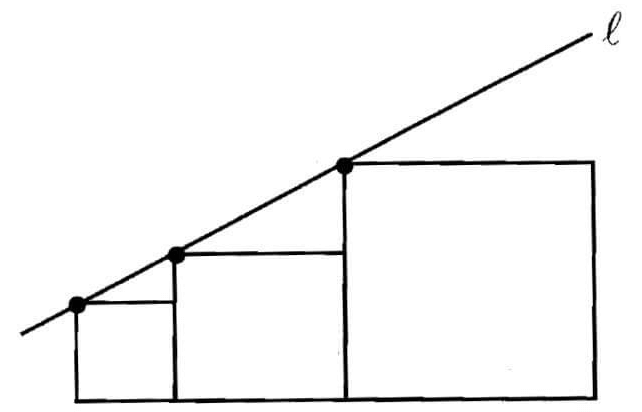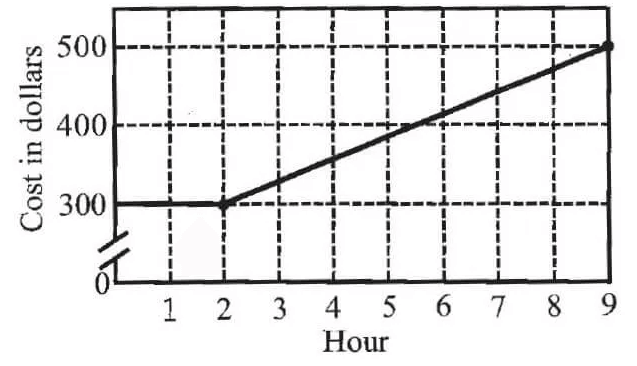EXPANSION OF TRINOMIAL WITH POWER 2
In this section, you will learn how to expand a trinomial with power 2.
Expansion of (a + b + c) Whole Square
(a + b + c)2 = (a + b + c)(a + b + c)
(a + b + c)2 = a2 + ab + ac + ab + b2 + bc + ac + bc + c2
(a + b + c)2 = a2 + b2 + c2 + 2ab + 2bc + 2ac
Expansion of (a + b - c) Whole Square
To get expansion for (a + b - c)2, let us consider the expansion of (a + b + c)2.
(a + b + c)2 = a2 + b2 + c2 + 2ab + 2bc + 2ac
In (a + b + c)2, if c is negative, then we have
(a + b - c)2
In the terms of the expansion for (a + b + c)2, consider the terms in which we find 'c'.
They are c2, bc, ca.
Even if we take negative sign for 'c' in c2, the sign of c2 will be positive. Because it has even power 2.
The terms bc, ac will be negative. Because both 'b' and 'a' are multiplied by 'c' that is negative.
Finally, we have
(a + b - c)2 = a2 + b2 + c2 + 2ab - 2bc - 2ac
Expansion of (a - b + c) Whole Square
To get expansion for (a - b + c)2, let us consider the expansion of (a + b + c)2.
The expansion of (a + b + c)2 is
(a + b + c)2 = a2 + b2 + c2 + 2ab + 2bc + 2ca
In (a + b + c)2, if b is negative, then we have
(a - b + c)2
In the terms of the expansion for (a + b + c)2, consider the terms in which we find "b".
They are b2, ab, bc.
Even if we take negative sign for 'b' in b2, the sign of b2 will be positive. Because it has even power 2.
The terms ab, bc will be negative. Because both 'a' and 'c' are multiplied by 'b' that is negative.
Finally, we have
(a - b + c)2 = a2 + b2 + c2 - 2ab - 2bc + 2ac
Expansion of (a - b - c) Whole Square
To get the expansion of (a - b - c)2, let us consider the expansion of (a + b + c)2.
The expansion of (a + b + c)2 is
(a + b + c)2 = a2 + b2 + c2 + 2ab + 2bc + 2ca
In (a + b + c)2, if b and c are negative, then we have
(a - b - c)2
In the terms of the expansion for (a + b + c)2, consider the terms in which we find 'b' and 'c'.
They are b2, c2, ab, bc, ac.
Even if we take negative sign for 'b' in b2 and negative sign for 'c' in c2, the sign of both b2 and c2 will be positive. Because they have even power 2.
The terms 'ab' and 'ac' will be negative.
Because, in 'ab', 'a' is multiplied by "b" that is negative.
Because, in 'ac', 'a' is multiplied by "c" that is negative.
The term 'bc' will be positive.
Because, in 'bc', both 'b' and 'c' are negative.
That is,
negative ⋅ negative = positive
Finally, we have
(a - b - c)2 = a2 + b2 + c2 - 2ab + 2bc - 2ac
Summary
(a + b + c)2 = a2 + b2 + c2 + 2ab + 2bc + 2ca
(a + b - c)2 = a2 + b2 + c2 + 2ab - 2bc - 2ca
(a - b + c)2 = a2 + b2 + c2 - 2ab - 2bc + 2ca
(a - b - c)2 = a2 + b2 + c2 - 2ab + 2bc - 2ca
Instead of memorizing all the above formulas, we may memorize the first formula and we may apply values of b and c along with signs.
Example 1 :
Expand :
(2x + 3y + 4z)2
Solution :
(a + b + c)2 = a2 + b2 + c2 + 2ab + 2bc + 2ca
a = 2x, b = 3y and c = 4z.
= (2x)2 + (3y)2 + (4z)2 + 2(2x)(3y) + 2(3y)(4z) + 2(4z)(2x)
= 4x2 + 9y2 + 16z2 + 12xy + 24yz + 16zx
Example 2 :
Expand :
(-p +2q + 3r)2
Solution :
a = -p, b = 2q and c = 3r.
= (-p)2 + (2q)2 + (3r)2 + 2(-p)(2q) + 2(2q)(3r) + 2(3r)(-p)
= p2 + 4q2 + 9r2 - 4pq + 12qr - 6rp
Product of Three Binomials
(x + a)(x + b)(x + c)
= x3 + (a + b + c)x2 + (ab + bc + ca)x + abc
Example 3 :
Expand :
(2p + 3)(2p −4)(2p −5)
Solution :
x = 2p, a = 3, b = -4 and c = -5.
a + b + c = 3 + (-4) + (-5) = -6
ab + bc + ca = 3(-4) + (-4)(-5) + (-5)(3)
= -12 + 20 - 15
= -27 + 20
= -7
abc = 3(-4)(-5) = 60.
= x3 + (a + b + c)x2 + (ab + bc + ca)x + abc
= (2p)3 + (-6)(2p)2 + (-7)(2p) + 60
= 8p3 -24p2 -14p + 60
Example 4 :
Expand :
(3a +1)(3a −2)(3a + 4)
Solution :
x = 3a, a = 1, b = -2 and c = 4.
a + b + c = 1 + (-2) + 4 = 3
ab + bc + ca = 1(-2) + (-2)(4) + 4(1)
= -2 - 8 + 4
= -10 + 4
= -6
abc = 1(-2)(4) = -8.
= x3 + (a + b + c) x2 + (ab + bc + ca)x + abc
= (3a)3 + 3(3a)2 + (-6)(3a) - 8
= 27a3 + 27a2 -18a - 8
Kindly mail your feedback to v4formath@gmail.com
We always appreciate your feedback.
©All rights reserved. onlinemath4all.com
Recent Articles
-
Digital SAT Math Problems and Solutions (Part - 146)
Apr 18, 25 06:52 AM
Digital SAT Math Problems and Solutions (Part - 146) -
Logarithmic Derivative Problems and Solutions
Apr 16, 25 09:25 PM
Logarithmic Derivative Problems and Solutions -
Digital SAT Math Problems and Solutions (Part - 145)
Apr 16, 25 12:35 PM
Digital SAT Math Problems and Solutions (Part - 145)

